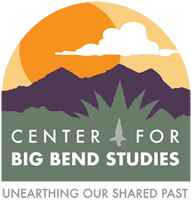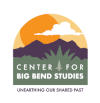Prehistory in the Trans-Pecos—Emphasis on Paleoindian
June 3 to July 9, 2013
This is a fun and exciting opportunity to study archaeology, hands-on, in beautiful West Texas, and a chance to contribute to the study of newly discovered buried Paleoindian occupations—the Genevieve Lykes Duncan site.
This six-credit-hour course teaches archaeological field techniques to undergraduate and graduate students. At Sul Ross, three hours of the class credit can be applied to Social Science curriculum requirements, and the remaining three hours apply to elective credit. However, students from other institutions may receive credit consistent with their local program guidelines (consult your department). You will be working side by side with experienced, professional archaeologists. The course is designed to assist students in learning and developing archaeological field techniques, such as mapping features, profiling exposures, finding and recording sites, and methods of excavation. Fieldwork is augmented by an intensive program of guest lectures, field trips, discussions, and laboratory work. Expect warm to hot temperatures—shade shelters will be used during excavations.
 This year’s field school will incorporate investigations at several noteworthy locations on the immense O2 Ranch in the Trans-Pecos region of West Texas. Much of the field school will focus on the Genevieve Lykes Duncan site, which hosts a range of prehistoric occupations, including some of the earliest buried components known in the region from roughly 8,500–11,000 years ago. Such Late Paleoindian occupations are extremely rare in the Trans-Pecos, and the site contains exceptional examples of early Native American technologies buried in deep alluvial sediment. This is an opportunity to be a part of ground breaking investigations into one of the most poorly understood time periods in the region.
This year’s field school will incorporate investigations at several noteworthy locations on the immense O2 Ranch in the Trans-Pecos region of West Texas. Much of the field school will focus on the Genevieve Lykes Duncan site, which hosts a range of prehistoric occupations, including some of the earliest buried components known in the region from roughly 8,500–11,000 years ago. Such Late Paleoindian occupations are extremely rare in the Trans-Pecos, and the site contains exceptional examples of early Native American technologies buried in deep alluvial sediment. This is an opportunity to be a part of ground breaking investigations into one of the most poorly understood time periods in the region.
Generally, the field school will consist of five 5-day sessions (Monday to Friday) with weekend breaks. However, considerable flexibility may be exercised to accommodate weather and field trip logistics. In most instances, bunkhouse-type accommodations will be available in ranch facilities. However, when conditions allow, some brief tent/car camping may be needed to facilitate field trips. All food is provided, with breakfast and dinner prepared by a camp cook. Depending on the final itinerary, Sul Ross can provide vehicle support for field trips, but students may want or need to provide transportation in some instances.
Some scholarships are available to help cover part of the field school fee.


